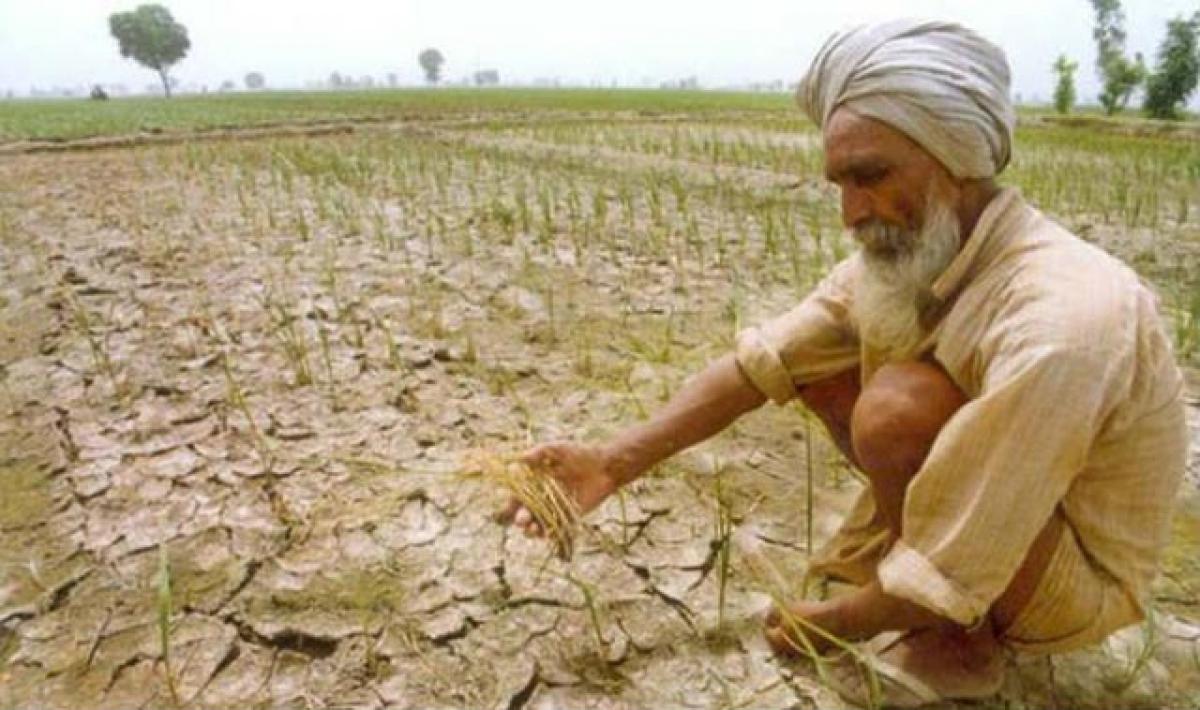Live
- Nobody praises Kejriwal's ten-year tenure: Sandeep Dikshit
- MacBook Air M3 Hits Lowest Price in India: Find Details
- High Court Adjourns Hearing on Allu Arjun's Petition to 4 PM
- Pawan Kalyan praises Chandrababu Naidu at Swarnandhra Vision 2047 document launch
- Chirec International looks to transform education with Chirec 2.0 vision
- Telangana CM Revanth Reddy Responds to Allu Arjun's Arrest in Delhi
- Uddhav Thackeray to PM Modi: Pay attention to Bangladesh, act to end Hindus’ misery
- Allu Arjun Arrested: KTR Reacts on X, Calls Arrest Unfair
- Bold steps by Modi govt in reviving Indian heritage, culture: Union Minister
- What are the charges against Allu Arjun: Understanding the Charges Against Him
Just In

India has the capacity to be a $ 5 trillion economy from today’s $ 2 trillion. Undoubtedly, Finance Minister Jaitley is right. But we need to change course. Certainly, economic reform is a confusing word. It now means increasing disparity and moving the government away from the people’s problem.
India has the capacity to be a $ 5 trillion economy from today’s $ 2 trillion. Undoubtedly, Finance Minister Jaitley is right. But we need to change course. Certainly, economic reform is a confusing word. It now means increasing disparity and moving the government away from the people’s problem.
Indeed, various epithets which describe reform might speak of the reality yet it does not suggest a cohesive path. This is reflected in the not so good farm growth, notwithstanding the GDP hovering between 7.6 and 7.9 per cent. It also does not state that jobs are growing, else firms hiring IIT and IIM graduates would either not “bench” them, cancel their appointments or renegotiate (reduce) the offered wages. Farmers too are not happy, despite, of late, the NDA government’s focus being on them.
Compounding this, there is envy between those who are “little” haves and those that do not have the “little” also. The Jats or Patels clamour for Government jobs’ reservation and consequent violence are signs of this restlessness. This reflects that there is a difference between statistical growth and happiness. Importantly, the State is unable to address these issues. And they are obviously not mere law and order problems.
Arguably, if the economy improves, one cannot understand why 80 crores farmers and related people (about 54 per cent of the population) live in abysmal conditions? Shockingly, the latest National Sample Survey (NSSO) data on farm debt is an eye opener. It underscores that of 9.02 crores farmers families, 52 per cent were in debt in 2013, while ten years earlier, in 2003 they accounted for 48.6 per cent.
Needless to say, despite the whopping Rs 52,000 crore farm loan waiver before the 2009 polls, nothing has improved. Moreover, the farm families have an average debt of Rs 47,000. Bluntly, a testimony to not only failure of waivers but also of the small sums farmers have to look for loans. Decades of neglect, some started by the British themselves, is causing havoc with the farm sector.
As a result it hits all others sectors and increases discontent in society. Obviously, it is no coincidence that the Jats, Patels or others OBCs in Maharashtra, Andhra Pradesh, Telengana and Karnataka are from the farming communities. The government has to look for avenues to integrate social groups or caste-based skills with the new Skill India. It needs to go beyond the bureaucratic registration process to make most of Modi’s Make in India to Stand-up India a success.
Therefore, there should be a policy discussion on how social groups which were strong pillars of India’s socio-economic structure can be rejuvenated, that too, without creating new problems or divisions. In short, the Government has to include the existing skills with the new approach, something that was trying to be attempted through the set-ups like master craftsmen. Also, the 35 per cent rise in KVIC is an indicator that village workers can contribute.
See how the village industries segment as a whole registered sale of Rs 36,425 crore during 2015-16 against Rs 31,965 crores during 2014-15, thereby marking a jump of 14 per cent compared to the 2014-15 growth of just 6.29 per cent while sales were Rs 30,073 crores in 2013-14. This phenomenon has to be widened and must include many who still remain out of its ambit. India’s new economy in the long run cannot be inflationary, discriminatory and exploitative. It should give support to the needy but avoid proffering doles.
By Shivaji Sarkar

© 2024 Hyderabad Media House Limited/The Hans India. All rights reserved. Powered by hocalwire.com







